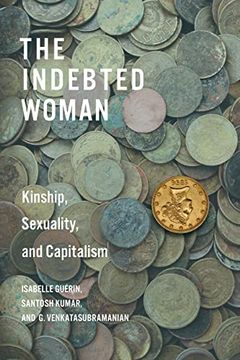Compartir
The Indebted Woman: Kinship, Sexuality, and Capitalism (Culture and Economic Life) (en Inglés)
Isabelle Guérin (Autor)
·
Stanford University Press
· Tapa Blanda
The Indebted Woman: Kinship, Sexuality, and Capitalism (Culture and Economic Life) (en Inglés) - Isabelle Guérin
34,86 €
36,69 €
Ahorras: 1,83 €
Elige la lista en la que quieres agregar tu producto o crea una nueva lista
✓ Producto agregado correctamente a la lista de deseos.
Ir a Mis Listas
Origen: Reino Unido
(Costos de importación incluídos en el precio)
Se enviará desde nuestra bodega entre el
Martes 18 de Junio y el
Jueves 27 de Junio.
Lo recibirás en cualquier lugar de España entre 1 y 5 días hábiles luego del envío.
Reseña del libro "The Indebted Woman: Kinship, Sexuality, and Capitalism (Culture and Economic Life) (en Inglés)"
Poor women have become essential cogs in the wheel of financialized capitalism. Globally, it is most often women who manage household debt to make ends meet, and that debt has exploded over the last decade, reaching an all-time high after the COVID-19 pandemic. Across various categories of loans, including subprime lending, microcredit policies, and consumer loans, as well as rent and utilities, women are overrepresented as clients and managers, and are being enfolded into the system. The Indebted Woman discusses the crucial yet invisible roles poor women play in making and consolidating debt and credit markets. Isabelle Guérin, Santosh Kumar, and G. Venkatasubramanian spent over two decades observing a credit market that specifically targets women in the Indian countryside of east-central Tamil Nadu. They found that paying off debts required labor, frequently involved sexual transactions, and shaped women's bodies and subjectivities. Bringing together ethnography, statistical surveys, and financial diaries, they offer for the first time a comprehensive theory for this sexual division of debt that goes far beyond the Indian case, exposing the ways capitalism transforms womanhood, and how this transformation in turn fuels capitalism.

